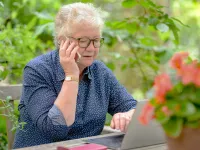The Coughlan Case Was a Landmark Ruling
The Coughlan Case (R v North and East Devon Health Authority, ex parte Pamela Coughlan) was a landmark legal ruling from 1999. It set a legal precedent that continues to shape NHS Continuing Healthcare (CHC) funding decisions today.
What Was the Coughlan Case?
The Coughlan case was a Judicial Review claim brought by Miss Pamela Coughlan against North and East Devon Health Authority in 1999. It clarified judicial review claims of this nature and marked a significant turning point in the realm of NHS Continuing Healthcare Funding.
Miss Coughlan received free NHS care in hospital until 1993. The hospital was closed, and she was transferred to Mardon House, an NHS-run facility. There, outside of the hospital, her care and accommodation continued to be provided by the NHS free of charge. The North and East Devon Health Authority promised Miss Coughlan that she would be able to live out her life at Mardon House. But things changed when the Health Authority decided to close it down due to the running costs.
Miss Coughlan proceeded to issue a claim for Judicial Review of the Health Authority’s decision. She argued that the Health Authority stated that she had a place at Mardon House for life, and this constituted a breach of her legitimate expectation that she could do so. Which should be enforceable in law against the Health Authority.
The Health Authority’s decision to close Mardon House meant not only that Pamela would need to move, but also that she would need to start paying for her care. This is because responsibility for meeting her needs would pass to the local authority under the means-tested system.

Crucial Points in the Coughlan Case
The key point in Pamela’s case was that the NHS had given her a legitimate expectation that Mardon House would be her permanent home. But court also examined the health authority’s ongoing responsibility to meet Pamela’s needs and the extent to which her needs could be met by the local authority. In other words, the court looked specifically at what makes someone eligible for NHS Continuing Healthcare. Because when a person’s needs are beyond what the local authority can provide, funding should be provided by the NHS.
In the Coughlan case, Miss Coughlan won. Both the High Court, and later the Court of Appeal, held that the Health Authority abused its power. It breached the legitimate expectation it gave to Miss Coughlan that she would have a place for life at Mardon House. It was found that there was no lawful justification for that decision.
If you are reading this because you’re trying to claim NHS Continuing Healthcare Funding, appeal a decision of ineligibility, or you’re retrospectively reclaiming wrongly paid care fees, the eligibility criteria are the same and, at the very least, it’s worth having a basic understanding of the Coughlan case.
What Were Pamela Coughlan’s Needs?
Pamela Coughlan suffered a severe spinal injury in road traffic accident in 1971 which left her tetraplegic and wheelchair dependent. She has been dependant on others for all aspects of her needs and activities of daily living ever since the accident.
In consultation with Miss Coughlan, the Spinal Injuries Association prepared a summary of her needs in 2015. Briefly at that time her needs were described as follows:
- She had mental capacity.
- She exhibited no challenging behaviour.
- She was paralysed in the lower part of her body with limited movement to her upper torso and required hoisting and repositioning by two members of staff. Once transferred to an electric wheelchair, she could manoeuvre it.
- She retained some limited use of her hands and could write with a pen strapped to her hand. She could access the internet and converse freely.
- She was able to feed herself with a spoon strapped to her hand and ensuring the food was cut up for her. She could not steadily hold a cup to drink.
- She was doubly incontinent, needing to be catheterised every 3 hours.
- Due to sensory paralysis, she had no skin sensation. She needed repositioning around 8 times per day and had pressure relieving equipment in place. Previously, she suffered from pressure sores which have healed.
- She wore a corset during the day to keep her chest upright, without which she would have difficulty breathing. She was susceptible to chest infections.
- She was prescribed regular medications, which she is given. She required suppositories to manage her bowels. Constant neurogenic root pain in her left foot proved difficult to control with painkillers.
- She was at risk of fainting if air flow was not kept constant.
- She had Autonomic Dysreflexia because of her spinal injury. This is a potentially life-threatening condition where the autonomic nervous system reacts to stimulus, such as bowel movements, causing a sudden and dangerous spike in blood pressure.
- She had Poikilothermia because of her spinal injury. This is a condition which prevents Miss Coughlan being able to regulate her body temperature.

What is the Relevance of the Coughlan Case Judgment to Continuing Healthcare Funding?
At first instance, the High Court found in favour of Miss Coughlan. The Health Authority breached the promise it gave her. This led her to have a legitimate expectation that her care and accommodation would be provided by the Health Authority, at Mardon House, for life. There were no compelling circumstances amounting to an overriding public interest to justify that promise being broken. The Health Authority appealed the decision to the Court of Appeal. The court again upheld the decision.
Although the Coughlan case was a resounding success for Miss Coughlan, there was a key difference between the decision of the High Court and later decision of the Court of Appeal. This placed some limits on the Health Authority’s responsibility to fund care.
Remember that Miss Coughlan received free NHS care in hospital and, consequently, free NHS care at Mardon House. The decision to close Mardon House and transfer Miss Coughlan to a local authority placement would have terminated her free NHS funded care. This would clearly have been wrong. The closure was instigated by the Health Authority to save money and not because Miss Coughlan’s needs had changed. There is no reason why Miss Coughlan should not continue to receive NHS funded care.
Impact of the Coughlan Case on the NHS
The original High Court judge looked at the NHS’s responsibility to provide Miss Coughlan’s nursing care and concluded that "health care can never be social care". The financial ramification of that would have been very significant for the NHS, because the NHS would have had to arrange and fund all nursing care.
The significance of the Court of Appeal’s decision was that the court placed a limitation on the NHS’s responsibility. It held that although individuals with primary healthcare needs will be the sole responsibility of the NHS, local authorities can lawfully provide a low level of nursing care.
The court said that local authorities could only provide nursing care if it is:
- Incidental or ancillary to the accommodation that they are required to provide, and
- Of a nature that a local authority, primarily responsible for social services, can reasonably be expected to deliver.
It means that local authorities will retain responsibility for certain individuals who need nursing care. However, that only applies if that nursing care falls within these limitations.
In our opinion, the threshold is in fact a relatively low one. If the nursing care provided is any more than merely incidental or ancillary to the accommodation, then the individual will have a Primary Health Need and be the responsibility of the NHS.
The boundary between health and social care is not clearly defined. Those responsible for applying the test rely heavily on their professional judgment to assess the quality and quantity of nursing services which are being provided and the limitations of the local authority.
The Coughlan Case Led to Legislation Change
The National Framework for NHS Continuing Healthcare and NHS Funded Nursing Care was eventually developed by the Department of Health. It indicates that the four key characteristics of a Primary Health Need - Nature, Intensity, Complexity, and Unpredictability – may alone, or in combination with one another, confirm nursing needs. These prove that the test laid down in the Coughlan case has been satisfied.
The Secretary of State also enacted The National Health Service Commissioning Board and Clinical Commissioning Groups (Responsibilities and Standing Rules) Regulations. These enshrine the use of the Decision Support Tool (DST) when assessing, which must be completed by a Multi-disciplinary Team to ensure a comprehensive needs assessment. This allows the team to be able to make a recommendation on eligibility for NHS Continuing Healthcare.
The Coughlan case judgment remains an important legal precedent, and the test must still be applied by the NHS when assessing eligibility for NHS Continuing Healthcare funding. Some NHS representatives may tell you that the National Framework has replaced the Coughlan judgment. This is false. Guidance cannot overturn law, such as that enacted by Parliament or case law made by judges. The National Framework guidance must comply with the Coughlan judgment.*
The Department of Health’s Primary Health Need test is intended to ensure that the "incidental and ancillary" test set out in the Coughlan case judgment is correctly applied. Unfortunately, we feel that the “policy bar” is often set too high by eligibility assessors, who may recommend that there is no Primary Health Need. Even where there is clear evidence that the individual’s nursing needs are more than merely incidental or ancillary to the provision of their accommodation, and of a nature beyond what a local authority can lawfully provide.

What is “Nursing Care”?
“Nursing care” or “healthcare needs” are not defined in law.
The Coughlan case judgment sets out the limitation on the nursing care that the local authority can provide. Section 22(3) of the Care Act 2014 prohibits local authorities from providing or arranging the provision of nursing care by a registered nurse. Provision of care by a registered nurse does not necessarily indicate eligibility.
This is arguably somewhat unhelpful, because a key principle of eligibility for NHS Continuing Healthcare is that it is based on the quality and quantity of the care being provided. Whether or not that care is provided by a registered nurse or other health professional. Individuals in residential care homes with no access to a registered nurse may qualify, as may an individual receiving 24/7 care at home by a devoted family member.
The National Framework states that a health need is one which is related to the treatment, control management or prevention of disease, illness, injury or disability, and the care or after care of a person with these needs. Whether or not those tasks have to be carried out by a health professional.
It then sets out what is not a health need in the context of NHS Continuing Healthcare. I.e. What may constitute a social care need. It says that they relate to:
- managing and maintaining nutrition
- personal hygiene
- toileting
- being appropriately clothed
- to make use of the home safely
- developing and maintaining relationships, accessing or engaging in activities
- making use of facilities and services and carrying out caring responsibilities.
The Coughlan Case Remains Relevant Today
R v North and East Devon Health Authority, ex parte Pamela Coughlan remains good law.
Each case must be considered on its own facts and no individual’s needs are the same. However, it cannot be overlooked that Miss Coughlan was entitled to be provided her care and accommodation for free by the Health Authority, and that her needs were found by the court to be of a fundamentally different nature from what a local authority could reasonably be expected to provide. Although guidance and assessment tools have changed since then, the law has not.
If you or someone you know is struggling with complex care needs, we can help. Contact our CHC funding expert, James Urquhart-Burton, to arrange a consultation. You can reach us on 0113 320 5000, or email @email to discuss how we can support you while you navigate this process.








